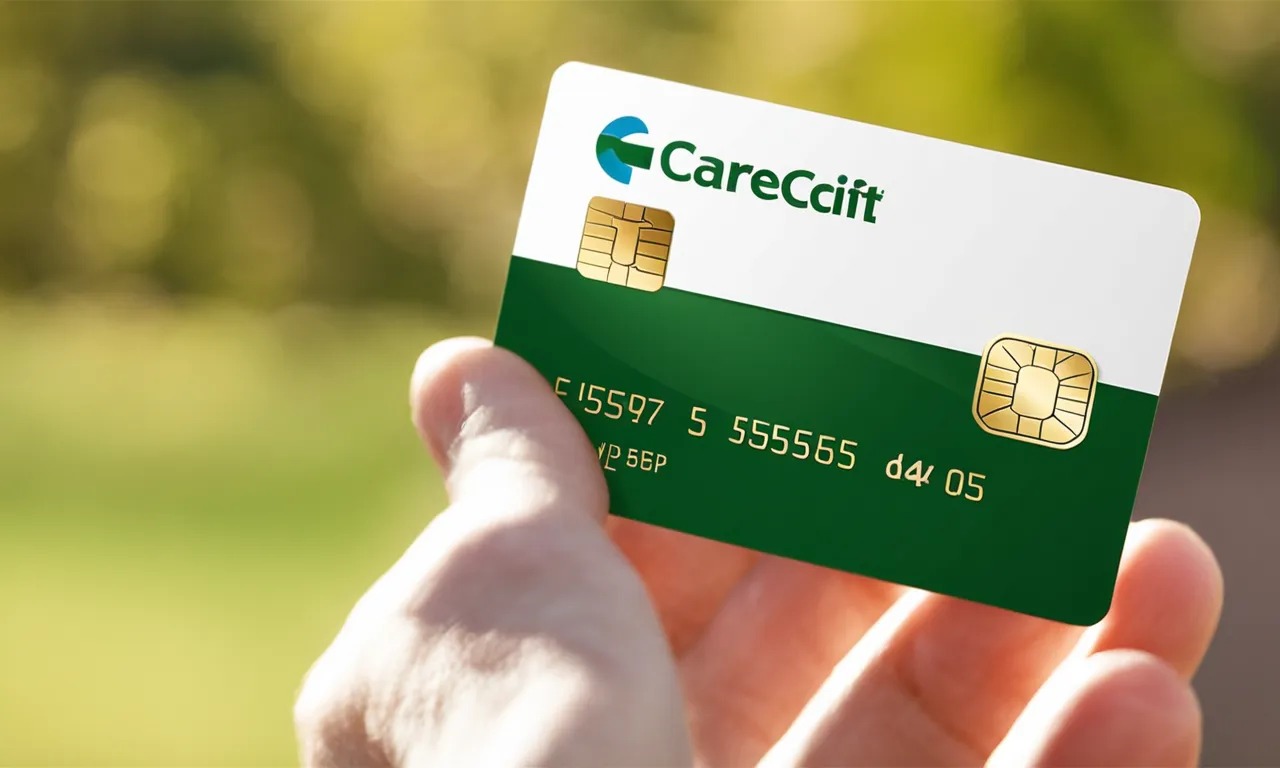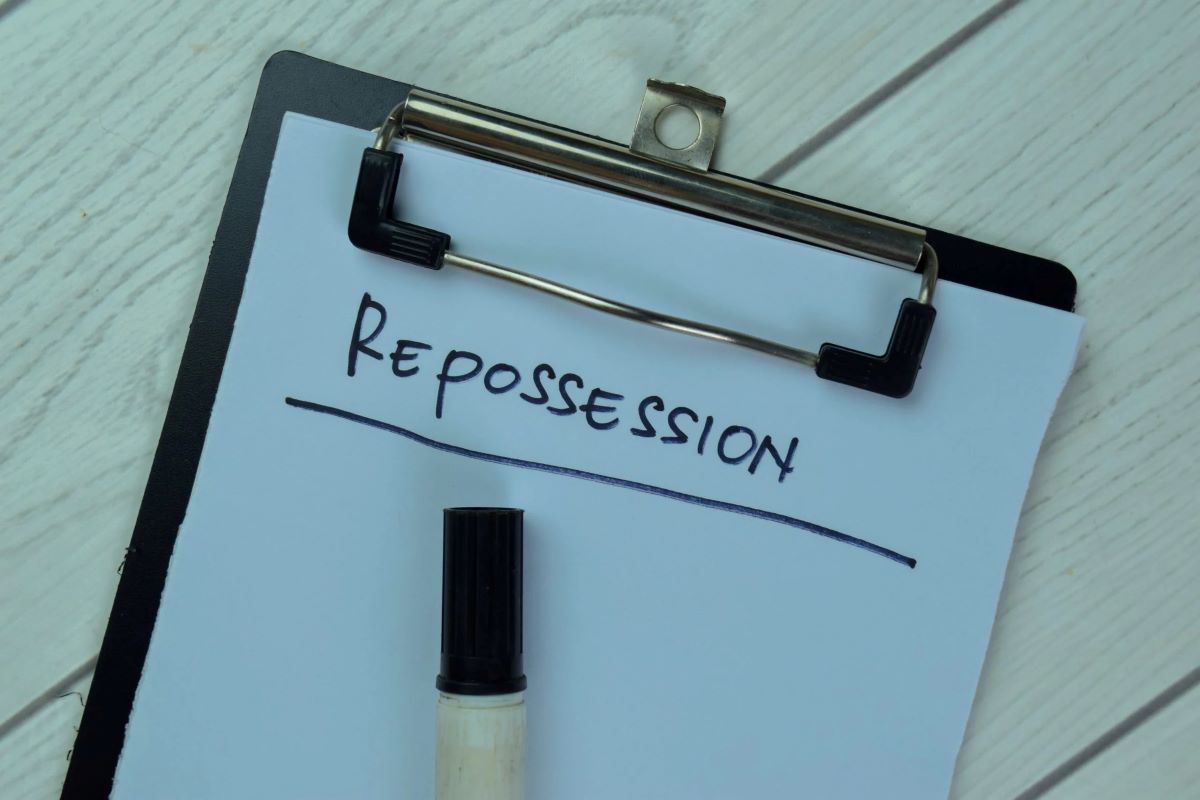

Finance
What Does A Voluntary Repo Do To Your Credit
Modified: March 6, 2024
Discover how a voluntary repo can impact your credit score and overall financial health. Learn important insights and tips to manage your finances effectively.
(Many of the links in this article redirect to a specific reviewed product. Your purchase of these products through affiliate links helps to generate commission for LiveWell, at no extra cost. Learn more)
Table of Contents
- Understanding Voluntary Repossession
- The Impact of Voluntary Repossession on Your Credit
- How Voluntary Repossession Differs from Involuntary Repossession
- Factors to Consider Before Opting for Voluntary Repossession
- Steps Involved in the Voluntary Repossession Process
- Rebuilding Your Credit After Voluntary Repossession
- Alternatives to Voluntary Repossession for Financial Relief
- Seeking Professional Help for Debt Management and Repossession
Understanding Voluntary Repossession
Voluntary repossession, also known as voluntary surrender, is a process where a borrower willingly returns a vehicle or other assets to the lender because they can no longer afford to make the required payments. It is commonly associated with auto loans but can also apply to other types of secured loans such as mortgages or personal loans.
When faced with financial difficulties, borrowers may choose voluntary repossession as a way to avoid the stress and costs associated with potential legal action or involuntary repossession. By opting for voluntary repossession, borrowers take control of the situation and proactively address their debt obligations.
During voluntary repossession, borrowers contact the lender to inform them of their intention to surrender the asset. The lender may require the borrower to fill out certain paperwork and provide key information about the condition and location of the asset. Once the vehicle or asset is returned, the lender can then sell it to recoup their losses.
It’s important to note that voluntary repossession does not eliminate the borrower’s responsibility for the remaining loan balance. If the sale of the asset does not cover the outstanding debt, the borrower may still be held liable for the remaining amount.
Furthermore, voluntary repossession can have a significant impact on a borrower’s credit score and overall creditworthiness. The repossession will be reported on the borrower’s credit report, indicating that they failed to fulfill their loan obligation. This negative mark can stay on the credit report for up to seven years, making it challenging to access future credit and loans at favorable terms.
Despite its consequences, voluntary repossession can help borrowers regain some control over their financial situations. It allows them to avoid the stress of potential legal action and can help minimize the costs associated with involuntary repossession, such as towing and storage fees.
It is important to carefully consider the implications of voluntary repossession before making the decision. Exploring other alternatives like loan modification, refinancing, or negotiating a repayment plan with the lender should be considered to potentially avoid the negative repercussions of repossession.
The Impact of Voluntary Repossession on Your Credit
Voluntary repossession can have a significant impact on your credit score and overall creditworthiness. When you decide to voluntarily surrender an asset, such as a vehicle or property, to the lender, it indicates to potential lenders that you were unable to fulfill your financial obligations.
The repossession will be reported on your credit report as a derogatory mark, which can significantly lower your credit score. This negative mark can stay on your credit report for up to seven years, making it challenging for you to access credit in the future at favorable terms.
Not only does voluntary repossession lower your credit score, but it also indicates to lenders that you may be a risky borrower. This can make it difficult for you to obtain new loans or credit cards in the future. If you are approved for credit, you may face higher interest rates and less favorable terms due to the perceived riskiness associated with the repossession.
Additionally, voluntary repossession can affect your credit in other ways. It can impact your credit utilization ratio, which is the amount of available credit you are using. When you surrender an asset, the balance of the loan may still be outstanding, and this unpaid debt contributes to your credit utilization. A high credit utilization ratio can negatively impact your credit score.
Furthermore, the repossession can also be seen by potential employers, landlords, and insurance companies who may request access to your credit report. This negative mark may make them hesitant to hire you, offer you rental housing, or provide you with favorable insurance rates.
Despite the negative impact on your credit, it’s important to remember that the severity of the impact will depend on your overall credit history and the other positive accounts you have. If you have a consistently good credit history with no other negative marks, the impact of voluntary repossession may be mitigated to some extent.
To minimize the impact of voluntary repossession on your credit, it’s crucial to take steps to rebuild your credit. This can be done by paying your bills on time, keeping your credit card balances low, and avoiding taking on too much new credit too soon.
It’s also worth noting that over time, the negative impact of voluntary repossession will diminish, especially if you demonstrate responsible financial behavior. As time passes and you work towards improving your credit, potential lenders may be more willing to overlook past repossession and consider you for loans or credit.
How Voluntary Repossession Differs from Involuntary Repossession
Voluntary repossession and involuntary repossession are two distinct processes that occur when a borrower is unable to make loan payments and fails to fulfill their financial obligations. While both types of repossession result in the return of the asset to the lender, there are key differences between the two.
Voluntary Repossession:
Voluntary repossession occurs when a borrower proactively contacts the lender to inform them of their decision to surrender the asset voluntarily. The borrower initiates the process and chooses to return the vehicle or property to the lender.
Benefits of voluntary repossession include the ability to have some control over the process and potentially avoid additional fees associated with involuntary repossession, such as towing and storage fees. However, it is essential to note that voluntary repossession does not absolve the borrower of their financial responsibility, and they may still be liable for any remaining loan balance.
Involuntary Repossession:
Involuntary repossession is the result of the lender taking action to repossess the asset without the borrower’s agreement or consent. This typically occurs when the borrower has defaulted on loan payments and failed to work out a resolution with the lender.
Unlike voluntary repossession, involuntary repossession often involves legal action, including a court order granting the lender the right to seize the asset. In some cases, this can result in the involvement of law enforcement agencies, such as the local sheriff’s department, to facilitate the repossession.
Additionally, involuntary repossession can lead to more severe consequences for the borrower. The lender may pursue legal action to recover any remaining loan balance, potentially resulting in wage garnishment or the seizure of other assets.
While voluntary repossession is a proactive step taken by the borrower, involuntary repossession is a last resort for the lender to recoup their losses. It is generally a more complex and legally involved process.
Both types of repossession can have significant impacts on the borrower’s credit score and creditworthiness. Whether the repossession is voluntary or involuntary, it is crucial for borrowers to consider other alternatives and seek professional financial advice before making a decision.
Factors to Consider Before Opting for Voluntary Repossession
Before deciding to pursue voluntary repossession, it’s important to carefully consider several factors that can impact your financial situation and future creditworthiness:
1. Financial Assessment: Evaluate your current financial situation and explore alternative options to manage your debt. Consider speaking with a financial advisor or credit counseling agency to assess your options and develop a plan that best suits your needs.
2. Impact on Credit Score: Understand that voluntary repossession will have a negative impact on your credit score. This can make it challenging to obtain future credit and loans at favorable terms. Consider whether there are other ways to resolve your financial difficulties without resorting to repossession.
3. Remaining Loan Balance: Even after the asset is repossessed, you may still be responsible for any remaining loan balance. Determine if you have the means to pay off the outstanding debt or negotiate a repayment plan with the lender to avoid further financial consequences.
4. Future Loan Applications: Voluntary repossession will appear on your credit report, making it important to consider the potential impact on future loan applications. Lenders may view the repossession as a red flag, affecting their willingness to extend credit or resulting in higher interest rates.
5. Legal Consequences: While voluntary repossession is a proactive approach, there may still be legal consequences. Ensure that you are well-informed about your rights and obligations under local laws and regulations regarding repossession.
6. Alternatives to Repossession: Explore alternative options that may be available to you. This includes negotiating a loan modification, refinancing the loan, or setting up a repayment plan with the lender. These alternatives may help you avoid the negative impact of repossession on your credit.
7. Future Transportation Needs: Consider how repossession may affect your ability to secure transportation in the future. Without a vehicle, you may face challenges commuting to work or fulfilling other important responsibilities. Explore alternative transportation options or potential arrangements to mitigate this impact.
It’s crucial to take these factors into account and exhaust all available options before making the decision to voluntarily surrender an asset. Seeking professional financial advice can provide valuable insights and guidance tailored to your specific circumstances.
Steps Involved in the Voluntary Repossession Process
If you have made the decision to pursue voluntary repossession, it is important to understand the steps involved in the process:
1. Contact the Lender: Begin by contacting the lender to inform them of your intention to voluntarily surrender the asset. Be prepared to provide details such as your account information, the make and model of the vehicle, and the location of the asset.
2. Gather Necessary Documentation: The lender may require you to fill out specific paperwork or provide documentation related to the asset. This can include the vehicle’s title, registration, loan agreement, and any other relevant documents.
3. Arrange for Asset Return: Coordinate with the lender to determine the logistics of returning the asset. They may provide instructions on where and when to drop off the vehicle or other relevant arrangements for the return of the asset.
4. Conduct a Vehicle Inspection: Before surrendering the vehicle, the lender may require an inspection to assess its condition. This inspection will help determine the value of the asset and its potential resale value.
5. Remove Personal Belongings: Ensure that you remove any personal belongings from the vehicle before returning it to the lender. Take the time to thoroughly clean the vehicle and return it in the condition specified by the lender.
6. Obtain Proof of Return: Request a receipt or proof of the vehicle’s return from the lender. This will serve as documentation that you fulfilled your obligation of surrendering the asset voluntarily.
7. Resolve Any Remaining Loan Balance: Voluntary repossession does not absolve you of the remaining loan balance. Communicate with the lender to determine the outstanding debt and explore possible options for repayment or negotiation.
8. Monitor Credit Reporting: Regularly review your credit reports to ensure that the voluntary repossession is accurately reflected. If you notice any errors, you can dispute them with the credit bureaus to have them corrected.
It is crucial to maintain open and transparent communication with the lender throughout the voluntary repossession process. This will help facilitate a smoother transition and minimize misunderstandings or potential disputes.
Remember that while voluntary repossession may seem like a way to regain control of your financial situation, it is a decision that should not be taken lightly. Exploring alternatives and seeking professional financial advice can provide you with a better understanding of your options and help you make an informed decision.
Rebuilding Your Credit After Voluntary Repossession
After experiencing voluntary repossession, it is essential to take the necessary steps to rebuild your credit and improve your overall creditworthiness. While the repossession will have a negative impact on your credit score, there are ways to gradually recover and demonstrate your creditworthiness to potential lenders:
1. Review Your Credit Report: Obtain copies of your credit reports from the major credit bureaus and carefully review them for accuracy. Dispute any errors or discrepancies to ensure that your credit report reflects accurate information.
2. Pay Bills on Time: One of the most important factors in rebuilding your credit is establishing a pattern of on-time payments. Pay all bills, including credit cards, loans, and utilities, by their due dates. Consistently making payments on time demonstrates responsible financial behavior to potential lenders.
3. Reduce Credit Card Balances: Lowering your credit card balances can positively impact your credit utilization ratio. Aim to keep your credit card balances below 30% of your available credit limit. Pay down your balances as much as possible to showcase your ability to manage credit responsibly.
4. Build a Positive Credit History: If you don’t already have one, consider applying for a secured credit card or becoming an authorized user on someone else’s credit card account. Responsible use of these accounts, such as making small purchases and paying them off in full each month, can help establish positive credit history.
5. Diversify Your Credit: In addition to credit cards, consider diversifying your credit portfolio by adding different types of accounts. This could include an installment loan, such as a personal loan or a car loan, to demonstrate your ability to manage various types of credit responsibly.
6. Avoid New Credit Applications: While it’s important to have a mix of credit accounts, avoid applying for multiple new credit accounts in a short period. Each application typically results in a hard inquiry on your credit report, which can lower your score temporarily.
7. Practice Patience: Rebuilding credit takes time. Remember that negative marks, including voluntary repossession, will stay on your credit report for up to seven years. However, as you establish positive credit habits and demonstrate responsible financial behavior, the impact of the repossession will gradually lessen over time.
Remember, the key to rebuilding your credit after voluntary repossession is consistent and responsible credit management. Stay dedicated to making on-time payments, reducing debt, and establishing positive credit habits. Over time, your credit score will improve, providing you with more financial opportunities in the future.
Alternatives to Voluntary Repossession for Financial Relief
Before considering voluntary repossession as a solution to your financial troubles, it’s important to explore alternative options that may provide relief while minimizing the negative impact on your credit. Consider the following alternatives:
1. Loan Modification: Contact your lender to discuss the possibility of modifying the terms of your loan. This can involve adjusting the interest rate, extending the loan term, or temporarily reducing the monthly payment amount. A loan modification can make your payments more manageable and help you avoid repossession.
2. Refinancing: Explore the possibility of refinancing your loan with a different lender. This can potentially lower your interest rate and monthly payment, making it easier to meet your financial obligations. However, keep in mind that refinancing may come with additional fees, so consider the overall cost-effectiveness before making a decision.
3. Repayment Plan: If you are struggling to make the full loan payments, discuss the possibility of setting up a repayment plan with your lender. This can involve spreading out the missed payments over a set period, allowing you to catch up on your debt gradually while keeping the asset.
4. Debt Settlement: Consider negotiating a debt settlement agreement with your lender. In this scenario, you would offer a lump sum payment to settle the debt for less than the full amount owed. However, be aware that debt settlement can have negative implications for your credit and may come with tax consequences.
5. Sell the Asset: Depending on the value of the asset, selling it may be an alternative to repossession. Use the proceeds from the sale to pay off the outstanding loan balance. If the sale amount is less than the remaining debt, you may be able to negotiate a repayment plan with the lender for the remaining balance.
6. Credit Counseling: Seek guidance from a nonprofit credit counseling agency. They can help you create a budget, negotiate with creditors, and provide valuable advice on managing your debt. Credit counselors can also assist in developing a debt management plan that may help you avoid repossession and regain control of your finances.
Remember, every financial situation is unique, and what works for one person may not be suitable for another. It’s crucial to assess your individual circumstances, consider the potential consequences, and seek professional advice before making any decisions regarding voluntary repossession or alternative solutions.
Seeking Professional Help for Debt Management and Repossession
If you find yourself facing overwhelming debt and the possibility of repossession, seeking professional help can provide valuable guidance and support. Consider the following options to assist you in managing your debt and navigating the repossession process:
1. Credit Counseling Agencies: Nonprofit credit counseling agencies offer professional assistance to individuals struggling with debt. They can provide personalized budgeting advice, debt management plans, and negotiation assistance with creditors. Credit counselors can also help you understand your rights and options regarding repossession and provide guidance on alternative solutions.
2. Debt Settlement Companies: If negotiation with your creditors becomes challenging, you may consider working with a debt settlement company. These companies negotiate with your creditors on your behalf to reduce the overall debt amount. However, be cautious when choosing a debt settlement company, ensure they are reputable, and carefully consider the potential impact on your credit and finances.
3. Bankruptcy Attorneys: If your financial situation is dire, consulting with a bankruptcy attorney may be necessary. Bankruptcy can provide relief from overwhelming debt and may help stop repossession proceedings. However, bankruptcy should be considered as a last resort, as it has significant long-term consequences on your creditworthiness.
4. Legal Aid Services: If you’re unable to afford an attorney, legal aid services may be available to provide free or low-cost assistance. They can offer guidance on repossession laws, review loan agreements, and help you understand your rights as a borrower.
5. Financial Advisors: Consider working with a financial advisor or a certified financial planner who specializes in debt management. They can provide personalized advice and create a comprehensive plan to regain control of your finances. They can also help you explore alternative solutions to repossession and develop a strategy for rebuilding your credit.
6. Stay Informed: Educate yourself on your rights and obligations as a borrower. Stay up-to-date on local laws and regulations regarding repossession and debt collection practices. Understanding your options and legal protections can empower you to make informed decisions during challenging times.
Remember, seeking professional help offers expertise and guidance, enabling you to make informed decisions about managing your debt and navigating the repossession process. Professionals can provide personalized solutions based on your unique circumstances and work towards a resolution that best fits your needs and financial goals.














